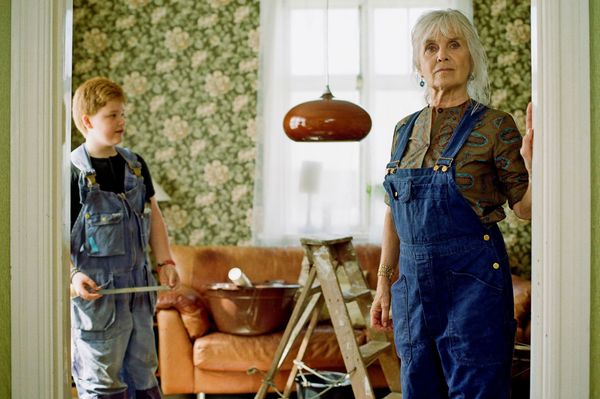Eye For Film >> Movies >> Home (2013) Film Review
Home
Reviewed by: Amber Wilkinson

Hollywood has a lot to say about shifting character, how good guys go on the slide to bad or evil masterminds find redemption, while even the independent film world frequently succumbs to dads who have a change of heart or mums who find the inner strength to change. Swedish director Maximilian Hult puts all that aside in his affecting comedy drama debut Home, to suggest that acceptance of who you are, your limitations and an ability to recognise that others accept you despite your faults can be just as important.
This is particularly vital for the central character of Lou (Moa Gammel) a lonely young woman who, although it is never spelt out, suffers the sort of difficulties in forming relationships often faced by people on the Asperger's spectrum. But, as the film goes on to show, though these issues may be an immutable part of her, they don't necessarily need to be a permanent barrier to love.

At the start of the film we see Lou discovering that a grandfather she didn't know existed has died, leaving her with the prospect of a living, breathing grandmother that she had thought long-dead. Heading to the village where her grandma Frida (Anita Wall) lives, against the wishes of her somewhat neurotic mother, she finds the eccentric welcome she receives similarly off-putting and magnetic.
Hult is interested in the messiness of life, flinging additional characters into the scenario. One is a shy, local pianist Henrik (Simon J Berger), who befriended Frida and her husband through a love of music and who tentatively tries to form a relationship with Lou. The other is Tom (Erik Lundqvist), a lonely schoolboy from a broken home who finds in Frida a shared need for companionship. Tom provides a comic chorus for the movie, trying his hand at any number of arts, crafts and sports in a bid to find the one that he has a talent for. Scenes of him cooking food to within an inch of its life and redecorating Frida's home with the grace of a bull in a china shop are laugh out loud funny, but his responses are also wonderfully childlike. Hult retains poignancy throughout, as we come to realise that Frida views Tom as a surrogate for her dead husband.
Wall brings Frida a playful intensity, allowing the pain of her grief to smoulder beneath her apparent devil may care attitude. But the humour here is muscular, holding the underlying emotions of loss and loneliness in check so that they don't turn into syrup. For Hult, home is a place where you can be yourself and where you'll always be welcome, no change required.
Reviewed on: 16 Jun 2014















